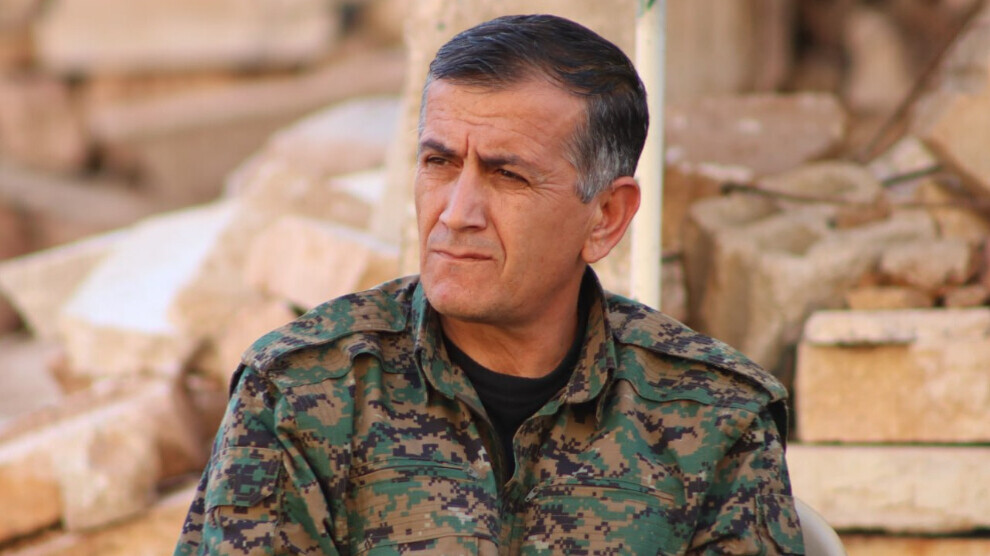YPG pays tribute to commander Shervan Heleb
Shervan Heleb was an active member of the Kurdish liberation movement for 30 years. He died of a heart attack in Hesekê. The YPG said his death was a great loss for Kurdistan.
Shervan Heleb was an active member of the Kurdish liberation movement for 30 years. He died of a heart attack in Hesekê. The YPG said his death was a great loss for Kurdistan.

The People's Protection Units (YPG) paid tribute to long-time commander Shervan Heleb who died on Wednesday in Hesekê as a result of a heart attack.
The YPG said in a statement that "he was a comrade, a champion of work and a pioneer of hard fighting. From Çiyayê Kurmênc to Dersim, Hevalê Shervan had an unshakable determination and dedication to resistance with the ideal of freeing our people from the grip of genocide and avenging them.
As his comrades, it is our aim to continue his fight and that of all the martyrs to the end. We express our condolences to the family of our commander, our people and all the fighters who are putting up relentless resistance on the front lines of the war."
Shervan Heleb's real name was Hesen Bekir, and he was born in the Afrin region, which has been occupied by Turkey since 2018. In 1993, he joined the Kurdish liberation movement. He went to the Bekaa Valley in Lebanon, where the Kurdistan Workers' Party (PKK) was still running its Mahsum Korkmaz Academy in the village of Helve. In the camp, Heleb also met the PKK founder Abdullah Öcalan. After completing his training as a guerrilla fighter, he moved to the war fronts in the mountains of Kurdistan. He fought in various areas of the Botan region as well as in the provinces of Bingöl (Çewlîg) and Dersim and remained there even when he was injured.
Only shortly before the Rojava Revolution did Shervan Heleb return to western Kurdistan. Here he helped set up the self-protection units "Yekinêyên Xweparastina Gel" (YXG), in 2011, shortly after the emergence of the "Arab Spring" in Syria. He was also involved in the process of restructuring the YXG into the YPG.
He was one of the commanders who resisted in Aleppo, organized the population on the basis of the "revolutionary people's war" and played a key role in making the liberation of the neighborhoods of Şêxmeqsûd and Esrefiye possible. He was involved in the final offensive of the Syrian Democratic Forces (SDF) against the Islamic State in Deir ez-Zor, as well as in the liberation of several Yazidi women who were taken by the jihadists from Shengal to the so-called ISIS caliphate.